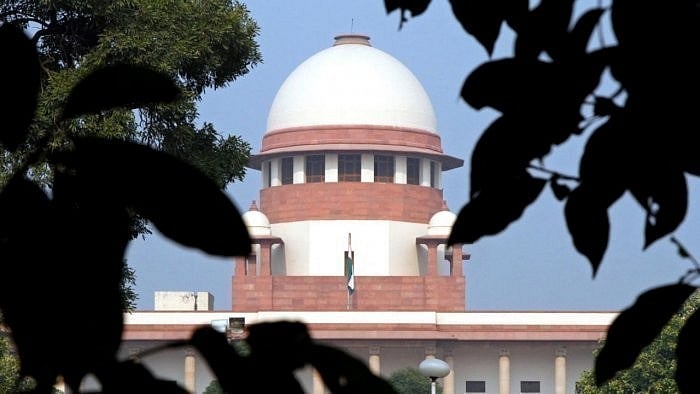
The Supreme Court of India.
Credit: PTI File Photo
New Delhi: The Supreme Court has said non-examination of the scientific expert who carried out the DNA profiling can prove fatal to a prosecution case, as it acquitted a man convicted of rape and murder of a child and awarded death penalty.
A bench of Justices Vikram Nath, Sanjay Karol and Sandeep Mehta said the DNA profiling reports cannot be admitted in evidence ipso facto by virtue of Section 293 CrPC and it is necessary for the prosecution to prove that the techniques of DNA profiling were reliably applied by the expert.
"In order to make the DNA report
acceptable, reliable and admissible, the prosecution would first be required to prove the sanctity and chain of custody of the samples/articles right from the time of their preparation/collection till the time they reached the FSL. For this purpose, the link evidence would have to be established by examining the concerned witness," the bench said, in a recent judgment.
The court noted at the very inception, the procedure of collecting the samples has been tainted on account of non-sealing of the forensic material collected from the accused-appellant.
It pointed out there is not even a semblance of evidence on record to satisfy the court that the samples/articles collected from the dead body of the child-victim and those collected from the appellant which were later forwarded to the FSL were properly sealed or that the same remained in a self-same condition right from the time of the seizure till they reached the FSL.
The bench said no witness from the FSL was examined by the prosecution to prove that the samples/articles were received in a sealed condition.
Hence, there is every possibility of the samples being tampered/manipulated by the police officers so as to achieve a favourable result from the FSL, thereby, inculpating the appellant in the crime, the court said.
"Consequently, we feel that the DNA/FSL reports cannot be read in evidence. Once, these reports of the FSL are eschewed from consideration, there remains no evidence on the record of the case so as to connect the appellant with the crime," the bench said.
Appellant Karandeep Sharma was held guilty of the offences under Section 376 A and 302 IPC and was sentenced to death penalty by the trial court in 2017. The High Court in 2018 confirmed the conviction and sentence.
As per the FIR, on the intervening night of June 25-26, 2016, the child victim had gone missing from the Jagran function. Her body was found lying in a nearby field during search.
The prosecution also relied upon last seen evidence to prove its case but the apex court disbelieved those.
"If at all, there was an iota of truth in this version of the witnesses of last seen theory, then there was no reason as to why they kept silent and failed to give this vital information to the police officers who arrived at the spot to investigate the matter in the early morning hours of June 26, 2016. Manifestly, going by the evidence of the Investigating Officer, no witness came forward with this theory till June 27, 2016," the bench said.
The FIR does not contain a whisper that anyone from the village had seen the child-victim in the company of the appellant, any time prior to her dead body being found, it said.
"Hence, in our considered opinion, the conduct of these witnesses in remaining silent and not disclosing to the police regarding they having seen the appellant taking away the child-victim with himself, completely demolishes the prosecution case regarding the theory of last seen," the bench said.
The court also pointed out that the present case was yet another classic example of undue haste resulting in denial of proper opportunity to the accused to be tried in a just and fair manner.
It noted, on none of the dates fixed by the trial court right up to the framing of charges and summoning of the witnesses did the court make any endeavour to provide legal aid counsel to the appellant despite noting the fact that he remained unrepresented throughout the said proceedings.
The bench also noted the lopsided manner in which trial was conducted is fortified from the evidence of Sub-Inspector Prahlad Singh who was allowed to narrate the entire confession of the appellant, in his examination-in-chief.
"This procedure adopted by the trial court in permitting a police officer to verbatim narrate the confession made by an accused during investigation is grossly illegal and contrary to the mandate of Sections 24, 25 and 26 of the Indian Evidence Act, 1872. Not only this, the trial court even allowed the confessional statement of the appellant, to be exhibited in the evidence of the witness, which further establishes that the trial was conducted in a totally distorted manner," the bench said.
